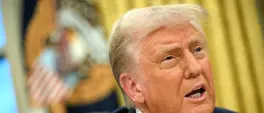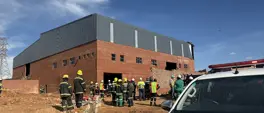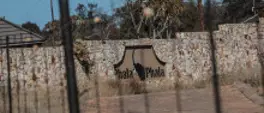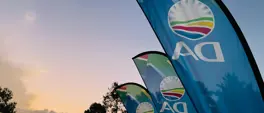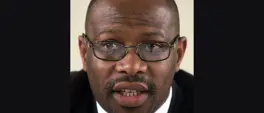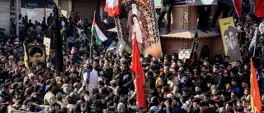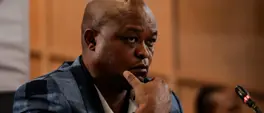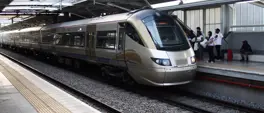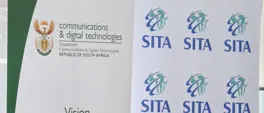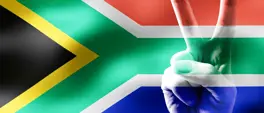MALAIKA MAHLATSI: Free education – a dream deferred?
Malaika Mahlatsi
6 March 2024 | 12:27The dream of an egalitarian society remains elusive. And nowhere is this elusiveness as pronounced as it is in South Africa’s higher education sector, writes Malaika Mahlatsi.
What happens to a dream deferred?
In 1951, Langston Hughes, one of the key figures of the Harlem Renaissance, asked this question in relation to American society during one of the most tumultuous periods in the country’s history. Hughes was contemplating the outcome of the delaying of the dream of an America of equals, asking whether it dries up like a raisin in the sun or festers like a sore.
He wonders if it stinks like rotten meat or crusts and sugars over like syrupy sweet.
Maybe it just sacks like a heavy load, he considers. And then, he concludes this contemplation with a question: Or does it explode? This explosion, in Hughes’ poem, refers to revolts. He considers that if systematic brutality continues to be meted out on Black people, riots and revolts would be inevitable.
For Hughes, the oppressive and dehumanising conditions of Black Americans in the Jim Crow South and marginalised communities in the segregated North made rebellion imminent.
While many scholars argue that Harlem is one of the most influential poems of the 20th century, there is no doubt that its relevance extends into the 21st century, where the dream of an egalitarian society remains elusive.
And nowhere is this elusiveness as pronounced as it is in South Africa’s higher education sector.
Towards the end of 2015, students across South African universities took to the streets in protests that would go on for two more years. The movement, known as #FeesMustFall, would render universities ungovernable as students refused to return to classes unless the government made a commitment to realise free education.
Though some analysts have sought to characterise the #FeesMustFall movement as a spontaneous rapture, the struggle for free education had been decades in the making.
In fact, the seed that would lay the fruit of the #FeesMustFall movement was planted back in the 1940s by students at the University of Fort Hare. Through their Student Representative Council led by the enigmatic Robert Sobukwe, these students started the conversation about decolonised and accessible education for working-class Black people.
This struggle would continue over the decades and into the democratic dispensation, where student organisations repeatedly called for an education that is free not only financially, but also ideologically. In the past, protests would occur on individual campuses, particularly in historically Black institutions.
It wasn’t until 2015 that these protests would be consolidated into a singular movement across all higher learning institutions, and not until 2017 that the dream of free education for the poor would seemingly be realised.
Every student activist who participated in the #FeesMustFall movement vividly remembers the events of 16 December 2017. On that day, the then president of South Africa, Jacob Zuma, announced that fully subsidised free higher education and training for poor and working-class South African students would be phased in by the government over five years, beginning in the following academic year, 2018.
For those of us who had marched for free education; and for those who had paid a heavy price for being part of the #FeesMustFall movement – being excluded from university, battling debilitating mental health problems from the traumas of the violence that characterised the government’s and universities’ response to the protests, and losing funding to complete qualifications, the announcement by Zuma felt like vindication. It felt like a resounding victory.
But over the years, it is becoming increasingly evident that this victory is not what we imagined it would be, and that there are still many mountains to climb.
This year, as with all previous years, the start of the academic year has been marred by student protests across various universities in the country. Many of these protests are around issues of students’ historical debt. Students owing large amounts of money to universities are unable to register to continue with their studies.
While some can sign an acknowledgement of debt (AOD) and enter into payment arrangements, many are unable to do this as AODs are extended to those with a “manageable” debt burden.
Another challenge that is facing students is that of affordable accommodation. Nearly every university in South Africa is facing a student housing crisis, with thousands of students unable to find accommodation and being forced to sleep in university halls or outside universities.
The student housing crisis is a result of interlinked factors, two of which are especially important. The first is rooted in our apartheid history when Black students did not have access to historically White institutions (HWIs) and the underfunding of historically Black institutions (HBIs).
With the abolishment of apartheid in 1994, universities were segregated as doors of learning were opened to all South Africans. This quantitative increase in student populations resulted in greater demand for student housing.
The second factor, linked to this, is that the student housing market is largely privatised. This has led to student housing prices being exorbitant and unaffordable to many – a situation that has been worsened by the recent capping of the student housing allowance for beneficiaries of the National Student Financial Aid Scheme (NSFAS) from R60,000 to R45,000 per annum.
An investigation by the Organisation Undoing Tax Abuse (OUTA) outlines the disastrous consequences of this decision. The impact of the student housing crisis undermines the vision of free education.
But there are solutions to this which the government, for whatever reason, is unwilling to seriously consider.
In my Masters in Urban and Regional Planning dissertation, which focused on this crisis of studentification and gentrification, I contend that the student accommodation crisis can be resolved.
One of the ways of doing this is by using existing government housing stock, which amounts to hundreds if not thousands of properties. The government must enter the student housing market that is presently dominated by the private sector.
Property developers and agents are not only charging exorbitant student accommodation fees, but they are also facilitating gentrification in both urban and rural areas. To disrupt this, the government must repurpose its vast property stock into student accommodation. It would need to enter into partnerships with the private sector and donor funders to rehabilitate many of its buildings to develop quality student housing.
We know that this is possible because, in 2019, the Gauteng provincial government had over two state-owned buildings to Wits University to repurpose for student accommodation.
But there is seemingly a lack of political will to make this a national programme, the consequence of which will be continued instability in the higher education sector. This instability and the deferring of the dream of free education for the poor threatens the very future of our country.
What happens to a dream deferred? It explodes.
Malaika is a geographer and researcher at the Institute for Pan African Thought and Conversation. She is a PhD candidate at the University of Bayreuth in Germany.
Get the whole picture 💡
Take a look at the topic timeline for all related articles.


